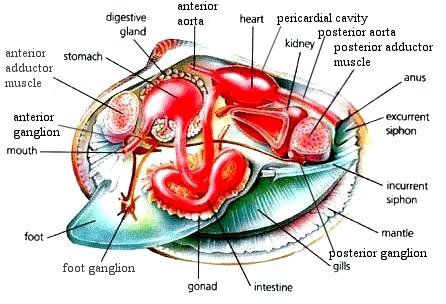The Assorted Collection of Studies, by the moon
Sept 15, 2010 17:42:25 GMT -5
Post by Prince Inigo on Sept 15, 2010 17:42:25 GMT -5
(8251d4 and 637ade)
1) According to C. W. Mills,
2) According to the class handout, what are the differences between the traditional and modern industrial society in terms of the following:
3) What are the three major elements of social disorganization in the US between 1840s and 1920s?
4) What was the goal that early sociologists tried to accomplish?
5) What is positivism?
6) What were the major factors in Durkheim's study of suicide?
7) Can you name and explain the major theory and concept of every classical sociological theoristthat we have talked about in class?
16) What are the three major theoretical perspectives in contemporary sociology?
Good afternoon to those of higher interest in sociology one-hundred-one and Luna - who is currently participating in said college course. As a part of an testing experiment to ensure sufficient awareness levels are in place, I - Takeba Suzumi - have been enlisted to assist my creator in answering this sheet of inquiries: S-O-C One-Zero-One Study Guide for Exam Pound (#) One. There is a total of 25 questions present on this single sheet, and I shall begin immediately.
1) According to C. W. Mills,
... what is sociological imagination?
... what is the distinction which is at the heart of sociological imagination?
... what are the three types of questions which sociology asks?
-- In accordance to the text provided by the book, The Practical Skeptic: Readings in Sociology on the third page of the entire textbook, sociological imagination has much to do with the everyday man and woman often perplexed by the world and universe they have assumed to have felt great comfort in; however, upon further speculation, the two parties become confused in their machinations. Sociological imagination, as replicated from said book, could be defined from the following quote: "What they need, and what they feel they need, is a quality of mind that will help them to use information and to develop reason in order to achieve lucid summations of what is going on in the world and of what may be happening within themselves."
I shall provide another quote: "The sociological imagination enables its possessor to understand the larger historical scene in terms of its meaning for the inner life and the external career of a variety of individuals." The following sentence, in lighter terms, expresses that an individual can obtain empirical information that deems that others are falsely conscious of their social positions.
From the book, it shall be a signal of what is best in contemporary studies of man and society. Enabling human beings to grasp history and biography and the relations between the two within society, that is the practicality of sociological imagination.
-- I am not certain of this question, however I shall do my best in explaining an answer of enough word count.
If understanding the part of the question, here is a quote to explain - possibly - the distinction which is at the heart of sociological imagination: "The first fruit of this imagination - and the first lesson of the social science that embodies it - is the idea that the individual can understand his own experience and gauge his own fate only by location himself within his period, that he can know his own chances in life only by becoming aware of those of all individuals in his circumstances." By my understanding and proper summation of the quote: An individual may hold information for the possible fates and acknowledging his or her own experience by pinpointing their place in the world, and he or she may know the possible outcomes by alerting to all the people in their events.
-- The three questions that embodies - and is asked from - sociology are, in simple words:
1. What is the structure of this particular society as a whole? What are its essential components, and how are they related to one another? How does it differ from other varieties of a social order? Within it, what is the meaning of any particular feature for its continuance and for its change?
2. Where does this society stand in human history? What are the mechanics by which it is changing? What is its place within and its meaning for the development of humanity as a whole? How does any particular feature we are examining affect, and how is it affected by, the historical period in which it moves? And this period - what are its essential features? How doe sit differ from other periods? What are its characteristic ways of history-making?
3. What varieties of men and women now prevail in this society and in this period? And what varieties are coming to prevail? In what ways are they selected and formed, liberated and repressed, made sensitive and blunted? What kinds of "human nature" are revealed in the conduct and character we observe in this society in this period? And what is the meaning for "human nature" of each and every feature of the society we are examining?
2) According to the class handout, what are the differences between the traditional and modern industrial society in terms of the following:
... religion
... economy
... political system
... prevalent type of family
... prevalent type of social groups
... and sources of identity?
Per the instructions of my master, I shall provided suppressed but essential information to each section.
-- Religion has significantly transformed from that of severe importance - for there was mostly one universal/continental practice of worship at the time - and defined the importance of one in life, whereas the practice of religion is now to a limited diversity, in which human beings of the Judeo-Christian denominations are less emphasized and the Protestant denominations are beginning to mold our economic and social lives. The old times spread religion as a major influence to all social sphere, but current religion of today has sporadic influence, such as Calvinism and "salvation anxiety."
-- Our ancestors produced the barest of essentials, else known to humanity as feudalism. The money was the earth, and the officials of Catholicism persuaded their followers that earning more than was necessary was immoral. In our modern life, we are under capitalism - production for exchange. After sucking much life from the earth, we had delved in the art of crafts, trinkets, and industry; usury is moral and a necessity for progressing industry.
-- For our ancestors were under a monarchy system, until 1789, the exodus of the population held little political power; the king had "divine right" to rule, and not a soul was to object, to not risk a beheading. Today, however, we have taken a different approach of rule: limited democracy. At the time, white men with bulging pockets could vote, but the women were excluded suffrage; workers or actors were and are prominent positions today.
-- Families were extended but close, huddled together. Due to the natures of labor and heritage systems, relatives lived in the same area and knew their neighbors and strangers. Progressing through the years, humanity has now come to be - as stated on the information sheet - nuclear, where connection is horribly absent by comparison of the past and the transition called this a "broken home."
-- Primary groups were key to our past folk; they were based on personal relationship and familiarity. We have turned unfamiliar and loosely connected due to conforming to the urban lifestyle, focusing on membership based on impersonal, business-criteria, or secondary groups.
-- Humans used to earn their identity through religion and family; but, unfortunately, we earn this same identity through work - seemingly a more heartless way of obtaining a place in the world.
3) What are the three major elements of social disorganization in the US between 1840s and 1920s?
Taken from the printed out notes, the three major elements of social disorganization in the United States of America between the 1840s and the 1920s lied in: industrialization, urbanization, and immigration.
4) What was the goal that early sociologists tried to accomplish?
The earlier and beginning sociologists - our early 'babies' in comparison to our now modern brains and developed understanding - were striving towards the goal of exploring and understanding the change to the rapid social disorganization influx.
5) What is positivism?
Positivism - according in the textbook by Henslin - is the idea of applying the scientific method to the social world. ... *blinks with a small smile*
6) What were the major factors in Durkheim's study of suicide?
[/justify][/blockquote]Emile Durkheim had taken upon empirical observation of suicide records in which he concluded - by statistics - that Protestants, males, and the unmarried committed suicide than those of the Catholic or Jew, female, and the married groups. He had summarized such from years of similar, if not the same, rates of self killings each year.
7) Can you name and explain the major theory and concept of every classical sociological theorist
-- Provided by Herbert Spencer in the handout, Social Darwinism entailed that the strongest of creatures in their species - humans or creatures - survive the years and continue improvement and progression, as the weak are left to decease and be the passing wind of time. Through rigorous evolution, the strong will constantly strengthen, and the lame 'previous strength' will be visited by the being with the bony figure, thus a eternal proceeding.
-- Karl Marx held a different view on the glues keeping societies together, for he invested belief in a theory by the name of Historical Materialism; here, the economy is the basis of sociological ideas and instutitions. Changes in the realm of the entire finance of the society - his theory explicitly explained - were the cause of sociological transformation, especially when dabbled in the forever clashing of the bourgeoisie and the proletariat parties.
-- Rationalization was a theory defined as such: social actions and interactions become based on efficiency or calculation rather than on traditions and customs. This was seemingly so for as the history of the United States of America progressed to the modern era, and this was proposed and though up of by the banished German doctorate in law, Max Weber.
-- The first historical professor under sociology - originating from France - Emile Durkheim, was under the impression of Social Solidarity. He had come up that Social Solidarity was the integration of society or a group based on two contrasting types: A traditional Mechanic Solidarity and a modern Organic Solidarity.
-- An American philosopher by the name of George Herbert Mead has brought sociology to the current expectation of its studies: Socialization, for which people become what they are through interaction with others, through learning, which - in of itself - is truth, for the theory explains that individuals are influenced by the environment and natural factors. Sociology now implements this theory, mostly.
16) What are the three major theoretical perspectives in contemporary sociology?
-- Structural-functionalist is of the perspective that macro, organic metaphor, and the consensus are integral. The sociologists Durkheim and Spencer shared this viewpoint, the society itself the focus, the shifts to a more complex group prominent.
-- The viewpoint of those that believe the contemporary sociological perspective of conflict hold firm to the notion that strife and bickering bring about great change, positive or negative. Notable sociological fathers for this type of lens are Marx and Weber. They perceived the changes of society reflective of the conflicts at their respective times, whether those arguments be about social classes or bureaucratization and rationalism.
-- The final perspective sharable of the masses is symbolic interactionalism. This term is rather strange in pronunciation; however, it is of great importance, for this has glued itself to a more modern look on sociology. The definition states that sociological problems are micro, are symbolic, have meanings, and are established through interactions. Only one significant figure was of this argument: Mead. There was a greater fixation on the self and learning of others than on the society, implying that the society is made from the people and their opinions.

















































 ) On the stem can be the presence of axillary buds; these can develop into branches. Terminal buds are the primary growth controllers for existing stems/branches.
) On the stem can be the presence of axillary buds; these can develop into branches. Terminal buds are the primary growth controllers for existing stems/branches.













